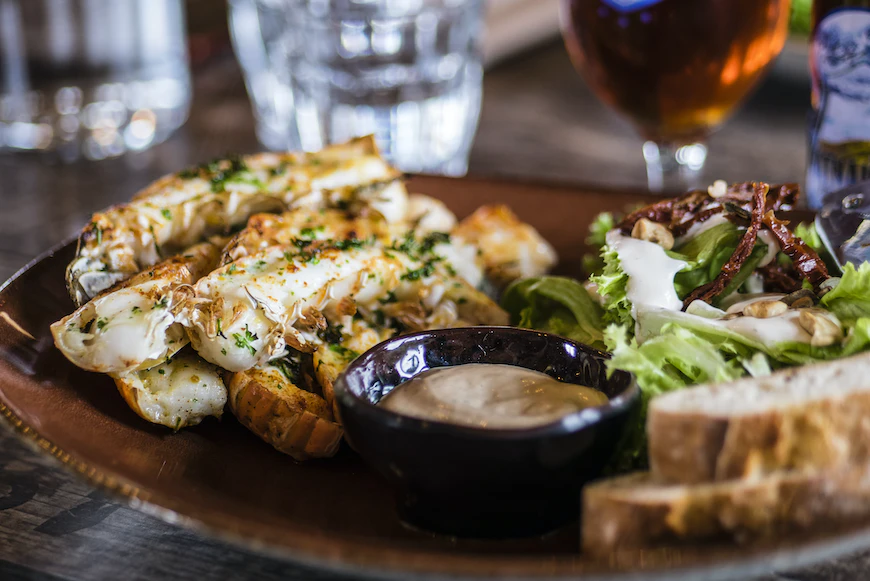Taste The Future: How Restaurant Management Apps Elevate Sales & Marketing Strategies
by Abdul Aziz Mondal Sales & Marketing Published on: 21 July 2023 Last Updated on: 13 December 2023

In the ever-evolving landscape of the food service industry, restaurants are increasingly turning to technology to gain a competitive edge. Among the myriad digital tools available, restaurant management apps have emerged as a game-changer.
Based on a report from Grand View Research, the worldwide market for restaurant management software is projected to achieve a value of USD 14.70 billion by 2030, experiencing a remarkable annual growth rate of 16.3% from 2023 to 2030. The market’s substantial expansion is attributed to factors such as the increasing global internet and smartphone penetration.
These apps have revolutionized not only business operations but also sales and marketing strategies. These powerful apps provide a holistic solution that enhances customer engagement, optimizes marketing efforts, and boosts overall revenue.
In this article, we will explore how restaurant management apps are transforming the way eateries approach their sales and marketing endeavors.
Streamlined Customer Engagement

According to CheddrSuite, restaurant management apps serve as a bridge between customers and the establishment. By enabling online reservations, order-ahead options, and real-time communication, these apps provide a seamless and convenient experience for diners. Gone are the days of long waiting lines and difficulty securing a table; now, customers can easily reserve a spot with a few taps on their smartphones.
Additionally, the ability to offer personalized push notifications ensures customers stay informed about special events, new menu additions, or exclusive promotions. Thus, the new restaurant technology not only enhances customer satisfaction but also fosters customer loyalty and repeat business.
Marketing Through Data Analytics
Harnessing the potential of big data, a restaurant management app offers valuable insights into customer preferences and behavior. As reported in Wired, various restaurant chains are now delving into the potential of big data to enhance their business operations.
McDonald’s, for instance, has embraced a data-driven approach, employing trend analytics to gain deeper insights into the performance of each of its individual restaurants. By leveraging this data, McDonald’s aims to identify best practices that can lead to overall improvements across its restaurant network.
By analyzing data on order history, dining frequency, and popular menu items, restaurants gain a comprehensive understanding of their target audience. Armed with this information, they can tailor marketing campaigns that resonate with specific customer segments.
For instance, a vegan-friendly restaurant might highlight its plant-based dishes to attract health-conscious diners, while a family-oriented eatery could promote its kids’ menu during school vacations. Such data-driven decisions lead to higher conversion rates and increased sales as marketing efforts become more focused and efficient.
Integrated Loyalty Programs
Restaurant management apps often incorporate loyalty programs that reward customers for their repeat patronage. According to the 2022 Restaurant Friction Index by Paytronix and PYMNTS, approximately 57% of restaurants provide rewards and loyalty programs to their customers. In response to these loyalty programs, 41% of consumers express that they feel incentivized to make purchases from restaurants.
Gone are the days of physical stamp cards; now, customers can earn and redeem loyalty points directly through the app. This seamless integration enhances user engagement, making it more likely for customers to participate actively in the program.
The app also stores valuable customer information, including dining preferences and past orders, allowing restaurants to tailor rewards based on individual tastes. Personalization creates a sense of exclusivity and appreciation, further strengthening the bond between the customer and the restaurant.
Social Media Integration
Social media is a powerful marketing tool, and restaurant management apps capitalize on this potential by integrating with various platforms. Customers can easily share their dining experiences on social media directly through the app, creating user-generated content that showcases the restaurant’s offerings.
Additionally, restaurants can leverage social media trends and hashtags to expand their reach and attract new customers. For example, a restaurant might run a photo contest where customers post pictures of their meals with a specific hashtag to win exclusive prizes. This not only increases brand visibility but also encourages customers to become brand advocates, promoting the restaurant organically to their social circles.
Real-Time Promotions And Offers
With restaurant management apps, restaurants can instantly roll out time-sensitive promotions to targeted customer segments. During traditionally slower periods, such as weekday afternoons, restaurants can offer time-limited discounts or promotions to entice customers to visit. These real-time campaigns create a sense of urgency, driving customers to take immediate action.
The app’s push notification feature becomes instrumental in notifying customers about these limited-time offers, ensuring they don’t miss out on incredible deals. As a result, restaurants can experience increased footfall during off-peak hours and optimize their revenue potential.
Enhanced Customer Feedback And Reviews
Prompt and genuine customer feedback is crucial for any restaurant’s success. With restaurant management apps, gathering feedback becomes a breeze. Restaurants can send post-dining surveys to customers, asking them about their experience, food quality, and service.
Additionally, apps often integrate review features, allowing customers to leave their thoughts and ratings directly within the platform. Positive reviews can be promptly acknowledged and showcased, further enhancing the restaurant’s reputation.
On the other hand, any negative feedback can be addressed privately and immediately, demonstrating the restaurant’s commitment to rectifying issues and providing quality service. Such attentiveness to customer feedback not only improves overall customer satisfaction but also helps the restaurant identify areas for improvement and innovation.
Final Thoughts
Restaurant management applications have emerged as a potent game-changer in the food service sector, empowering establishments to enhance patron interaction, optimize marketing approaches, and elevate overall revenue. By harnessing data analytics, personalized incentives, and social media integration, these apps provide valuable insights and establish a smooth dining experience for customers.
The incorporation of loyalty programs fosters customer allegiance, while real-time promotions stimulate immediate action and foot traffic during less busy periods. Furthermore, prompt feedback mechanisms ensure ongoing improvement and uphold the restaurant’s standing. Adopting these cutting-edge technologies would surely lead restaurants to profitability and competitiveness in a volatile business setting.
Read Also:







































































































